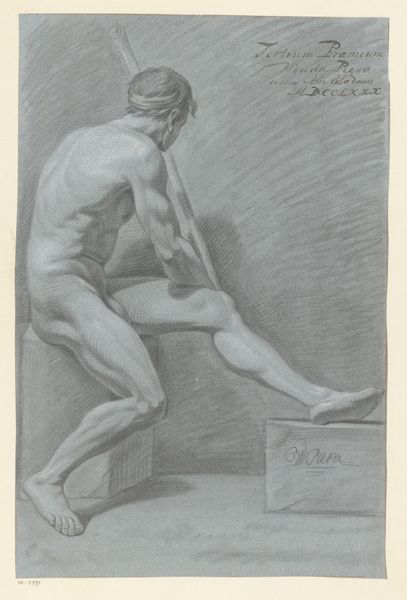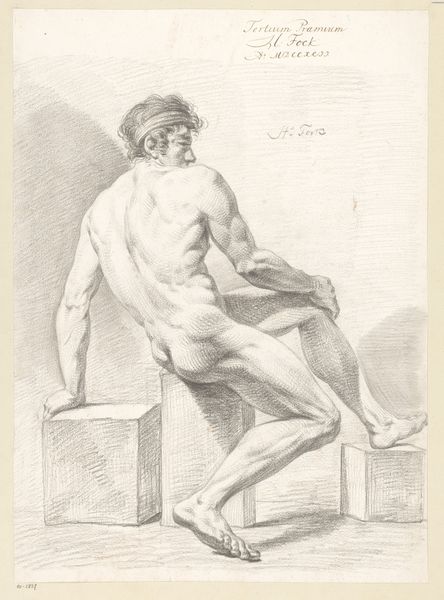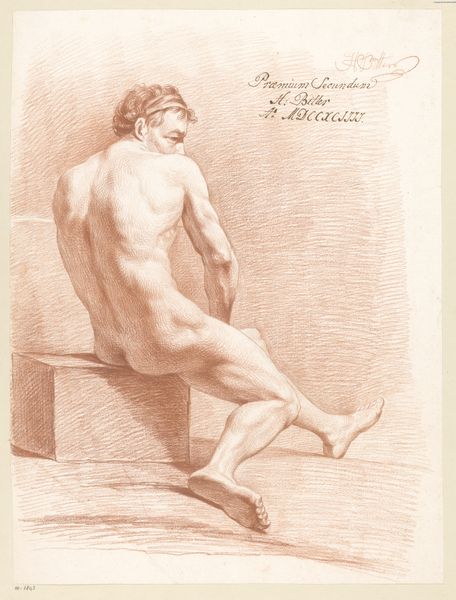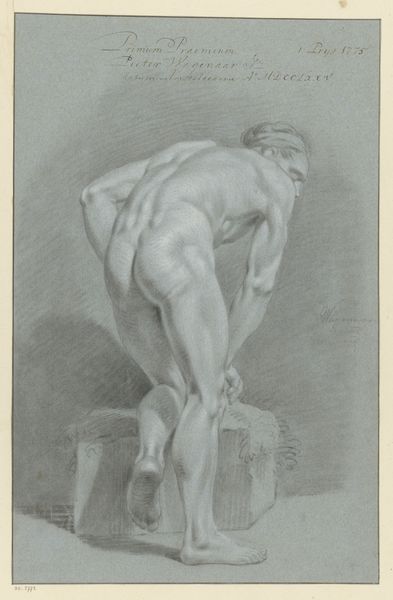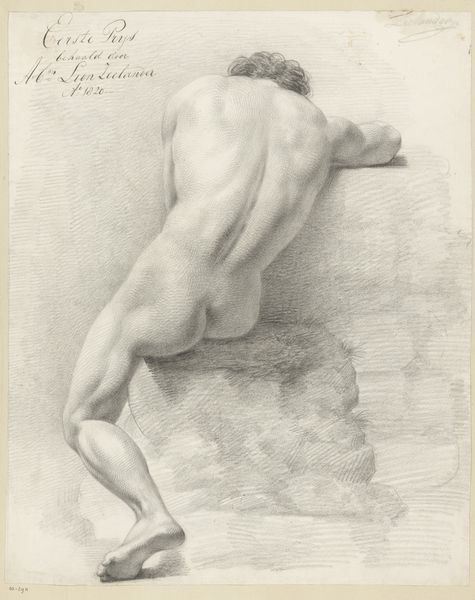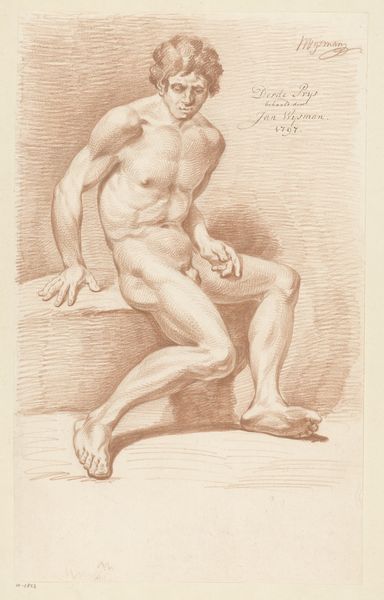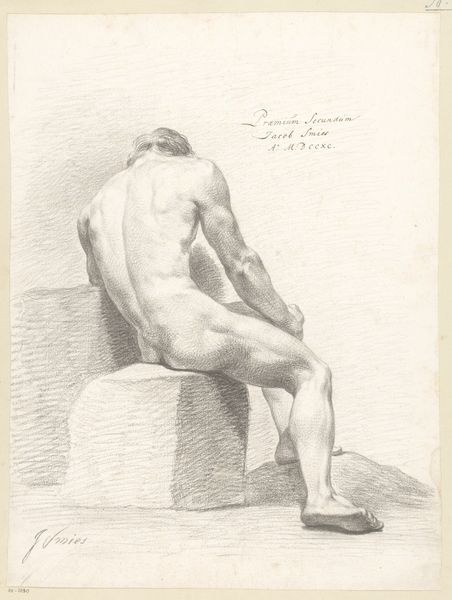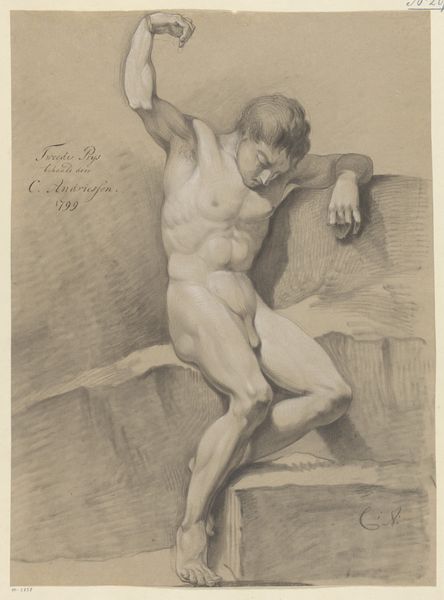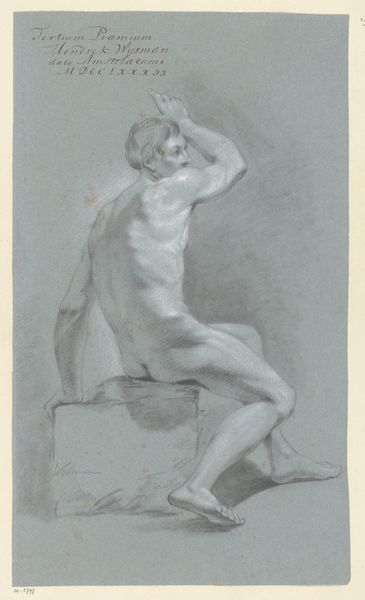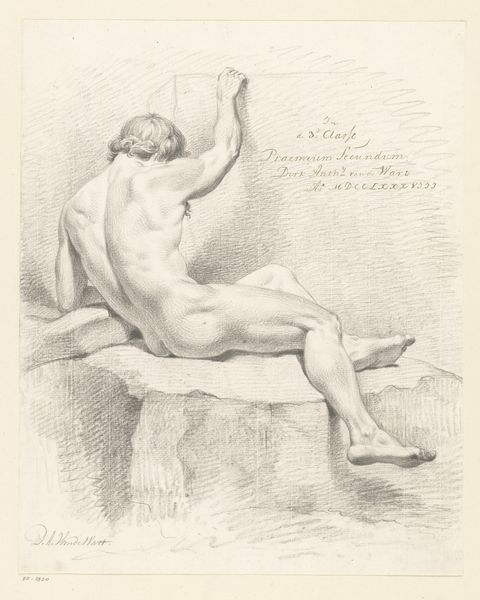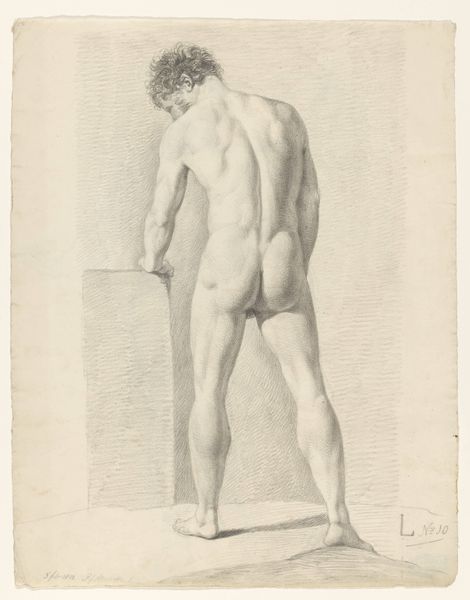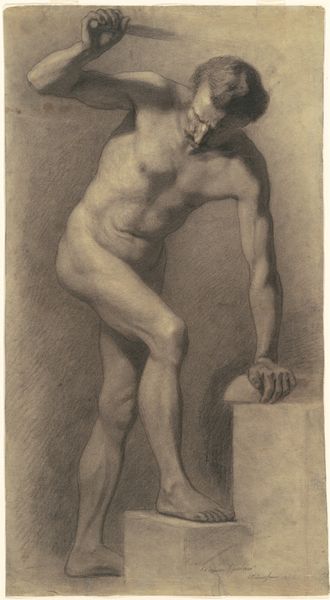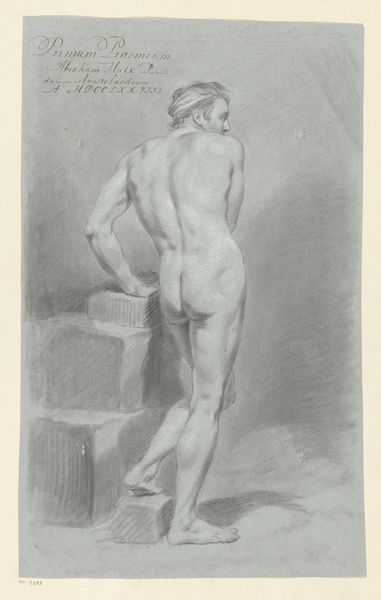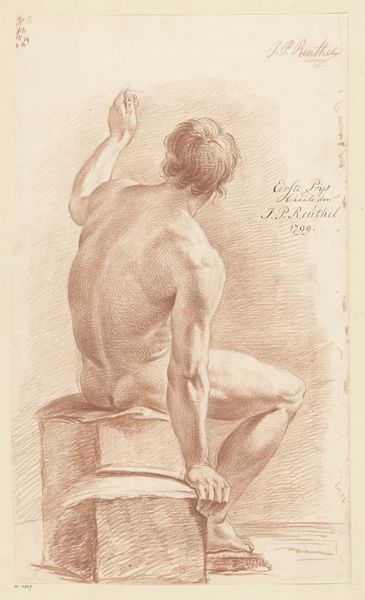
Zittend mannelijk naakt, op de rug gezien (1e prijs 1795) Possibly 1795
0:00
0:00
hermanusfock
Rijksmuseum
drawing, pencil, charcoal
#
drawing
#
neoclacissism
#
pencil sketch
#
charcoal drawing
#
figuration
#
pencil drawing
#
pencil
#
charcoal
#
academic-art
#
nude
Dimensions: height 525 mm, width 319 mm
Copyright: Rijks Museum: Open Domain
This drawing, ‘Zittend mannelijk naakt, op de rug gezien’, was made by Hermanus Fock in 1795, and it won first prize that year. It’s made with black chalk, heightened with white, on a blue paper. Chalk is a humble material, yet in Fock’s hands, it eloquently captures the sitter’s anatomy. Notice how the artist coaxes a range of tonal values from the chalk, building up the figure with layers of shading. Chalk drawings like this were often made in preparation for larger paintings. They were a way for artists to work out the composition and lighting of a scene before committing to canvas. The academic setting is important here. Fock wasn’t just making a drawing; he was demonstrating his mastery of artistic conventions, and also the skill of draftsmanship, which in those days was considered fundamental to all artistic practice, including decorative arts. So, the next time you see a chalk drawing, remember that it's not just a sketch, but a demonstration of artistic skill.
Comments
No comments
Be the first to comment and join the conversation on the ultimate creative platform.
